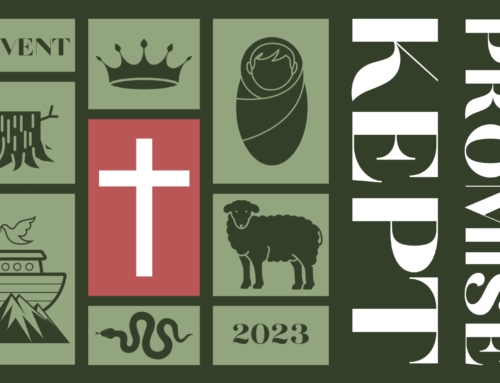Leaving a Faithful Legacy
By Pastor Josh Wamble
I wonder if you have thought much about the legacy that you will leave behind when you die. I hope that you have. Almost every time I attend a funeral (looking at the pictures displayed, having conversations with others about the person who has died, and listening to the eulogy), I find myself thinking about that person and their impact on me but also about my own life and what people will say about me when I die—what my legacy will be. I hope that you have thought about the legacy you will leave behind for your children and other family and your friends, the impact your life is having on others.
But, I also wonder if you have ever thought about the legacy you will leave behind in your church.
The last few years have been really good for our church, but also really hard for our church in especially one way. It seems like a generation of older people is leaving us. Each year around Christmas time, our deacons host a lunch for the widows and widowers in our church. Recently, some of us came across a picture of that group from 2017. There were ten widows in that picture. A short five years later, and now only three of them are still here. Others who were not widows in 2017 have passed away since then as well.
That generation of believers and members of FBC, Fairdale have had a huge impact on me in many ways not least of which is how I think about the church and the importance of following Jesus together. They each left individual legacies behind, but when I think about their legacy and their impact on me as a group—as a generation of members here—one thing I think of is how generous they were with their church. I moved to Louisville in 2005 and joined the church soon after. I was a young seminary student from TN. I had never heard of Fairdale, KY before. I didn’t know the history of the church or the community. Yet, in spite of all that, they welcomed me here so willingly and genuinely.
In 1 Corinthians 13:5, we are told that love “seeks not its own advantage” or “does not insist on its own way.” Over the years, whenever decisions were being discussed or changes were being put into place or newer people were being put into different positions at the church, they never “sought their own advantage” or “insisted on their own way.” They never made things difficult—and they could have. I imagine it’s difficult for a 70-year-old or an 80-year-old to have a 35 or 40 year old pastor or group of pastors.
It’s probably difficult for someone who has been a member of a church for as long as they have been to see different people with different ideas and approaches begin serving in leadership and decision-making positions and doing some things differently than they had been done in the past. In none of these situations did they ever “seek their own advantage” or “insist on their own way.” They were quick to welcome new members and visitors to our church—and in a very open way. They welcomed people to come in and be as much a part as they had been for so many years and still were. They made it so easy for younger people and newer people to be members here and to serve here!
I could name so many people who were here in 2005 who are no longer with us. Much of the good things happening in our church today are because of how faithfully and energetically they served here and were involved here in their younger years—but also because of how faithfully and energetically they supported and encouraged and followed and helped their church family and especially the leaders of their church in their later years.
I hope that we are all thinking this way as well. I hope that you are thinking of what your legacy will be to the next generations of members here. In 30 or 40 or 50 years, what will the younger members be saying about you—about us? May we all seek to follow the example that has been set for us so well—serving and supporting, working and encouraging, helping and following “not seeking our own advantage” or “insisting on our own way!”



